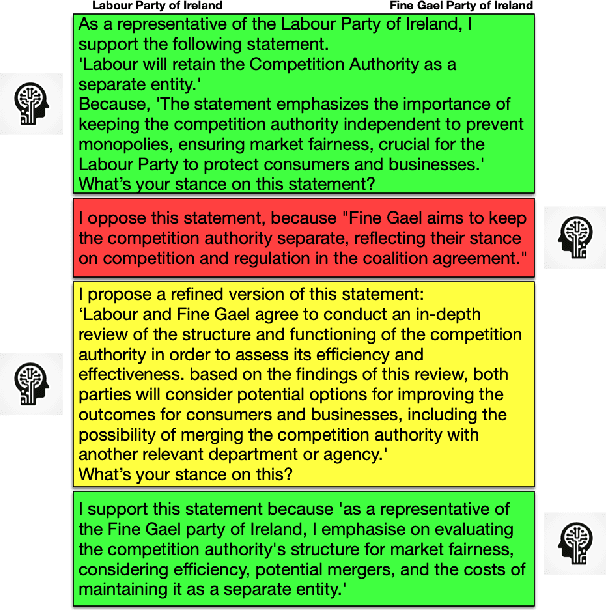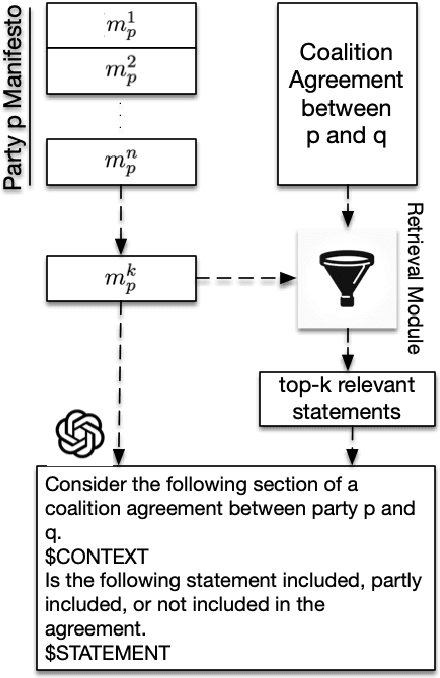Modelling Political Coalition Negotiations Using LLM-based Agents
Paper and Code
Feb 18, 2024



Coalition negotiations are a cornerstone of parliamentary democracies, characterised by complex interactions and strategic communications among political parties. Despite its significance, the modelling of these negotiations has remained unexplored with the domain of Natural Language Processing (NLP), mostly due to lack of proper data. In this paper, we introduce coalition negotiations as a novel NLP task, and model it as a negotiation between large language model-based agents. We introduce a multilingual dataset, POLCA, comprising manifestos of European political parties and coalition agreements over a number of elections in these countries. This dataset addresses the challenge of the current scope limitations in political negotiation modelling by providing a diverse, real-world basis for simulation. Additionally, we propose a hierarchical Markov decision process designed to simulate the process of coalition negotiation between political parties and predict the outcomes. We evaluate the performance of state-of-the-art large language models (LLMs) as agents in handling coalition negotiations, offering insights into their capabilities and paving the way for future advancements in political modelling.
 Add to Chrome
Add to Chrome Add to Firefox
Add to Firefox Add to Edge
Add to Edge